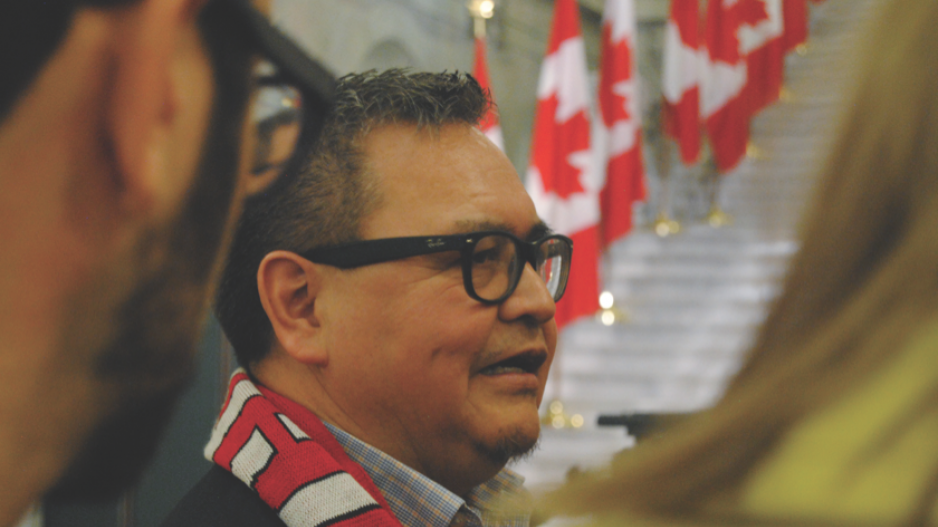May 17’s Federation Flight carried 100 B.C. business, labour and Indigenous leaders to Edmonton with an impassioned message.
“This is truly a crisis of confidence in Canada,” said Val Litwin, president of the British Columbia Chamber of Commerce, of the issues surrounding the Kinder Morgan (TSX:KML) Trans Mountain pipeline expansion.
And it’s one that B.C. businesses care about.
“I think we’re going to see an increase in intensity on both sides,” he said, adding that there is “real concern” that Alberta might use its newly legislated powers to turn the oil tap off, and the pressure up, on British Columbia.
The messaging through the day-long event – organized by the Greater Vancouver Board of Trade (GVBOT), the Edmonton Chamber of Commerce and the Calgary Chamber of Commerce – was familiar.
So were Alberta Premier Rachel Notley’s assurances to B.C. and Alberta businesses that the pipeline would be built.
The initiative was a show with a thought-out narrative: attendees at an Edmonton chamber luncheon all donned red scarves that read “Canada,” and the B.C. group broke out singing the national anthem while visiting the Alberta legislature.
But outside the multiple photo-ops and media scrums, private, focused meetings took place. And underneath the patriotic emphasis on the federation: real concern about the implications for Canada and a novel grouping of individuals who signed up to spend a full day discussing them.
“B.C. is not an island unto itself, nor a silo within Canada. I think the message is loud and clear,” said David Choi, national executive chairman of the National Congress of Chinese Canadians.
Choi added that governments’ first plan on the matter should be to talk to each other, but that Plan B shouldn’t be the current table stakes.
“I think the Plan B is not the federal government giving some financial assurance to the pipeline company with an unpredictable and unmeasurable political risk that translates into costing every Canadian money.”
While virtually every participant supported the pipeline, reasons for doing so differed: fear for how a failed project could hurt Canada’s reputation, concern for dollars fleeing south of the border, real economic hardship.
“We have debt. If this project doesn’t go forward, it’s going to have catastrophic impacts on us as well,” said Keith Matthew, former chief of the Simpcw First Nation, which signed an agreement with Kinder Morgan in 2007.
“Our goal is to show that First Nations people are part of the Western Canadian economy.”
According to the GVBOT, 10 Indigenous leaders flew on Federation Flight in what organization president and CEO Iain Black called one of the most diverse groups he’s seen.
Among them: members from the board of trade’s Company of Young Professionals, leaders of multiple chambers of commerce, industry and business associations and union and labour representatives. Notably absent was any federal politician and any business leader that opposed the project.
“I think we’ve seen a movement for First Nations to have a stronger voice,” said George Petel, the founder of Petel Law and the former CEO of the Kamloops Indian Band Group of Companies.
“We’re being listened to now. We can’t just have everybody saying ‘No’ to the project when there’s a lot of yeses out there.”•




